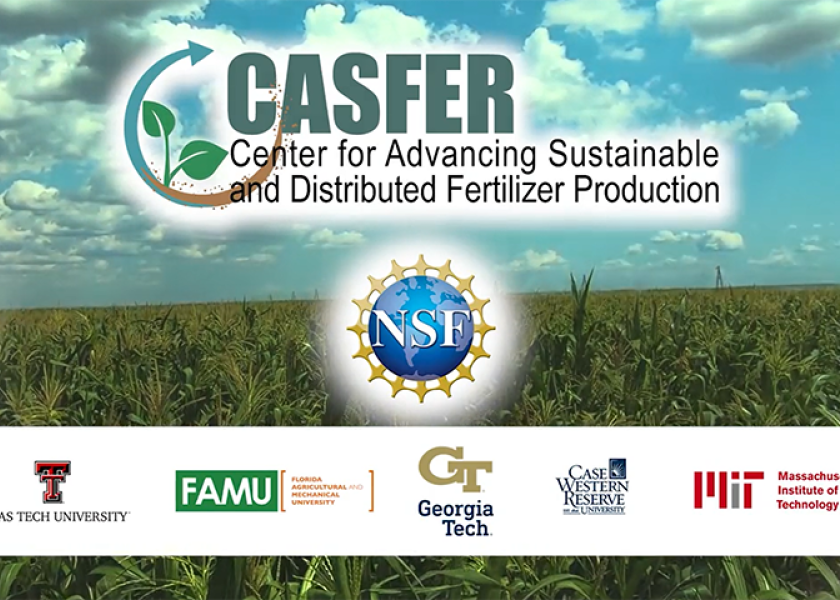National Science Foundation and Five Universities Partner for Fertilizer Research

With a $26 Million grant from the National Science Foundation, Texas Tech University will led a collaboration with four other universities to research the future of fertilizer. Its goal: develop next-generation, modular, distributed and efficient technologies for capturing, recycling and producing decarbonized nitrogen-based fertilizers. The other participating institutes of higher education are: Florida Agricultural and Mechanical University, Georgia Institute of Technology, Case Western Reserve University and the Massachusetts Institute of Technology.
This announcement creates the NSF Engineering Research Center for Advancing Sustainable and Distributed Fertilizer Production (CASFER), which is funded for an initial five-year time and renewable for another five years. Engineering Research Centers are designed to foster innovation and collaboration between industry leaders, government agencies and institutions of higher education.
“The Engineering Research Center award is the most prestigious and difficult award to obtain from the National Science Foundation,” said CASFER Center Director Gerri Botte. “This is a tremendous opportunity to solve one of the largest problems in the world: how we feed the growing population while protecting and sustaining our environment.”
“We are going to enable resilient and sustainable food production and we're going to do that by making the next generation of technology to produce nitrogen-based fertilizer more efficiently while implementing waste streams. We’re going to transform the United States and the world from a nitrogen pollution economy to a nitrogen circular economy in which we're going to recycle nitrogen-based fertilizer and use it to produce crops and food. With CASFER, we are moving toward a nitrogen circular economy,” Botte said.
Since the program’s inception in 1985, NSF has awarded fewer than 100 grants to open Engineering Research Centers.
“For decades, NSF Engineering Research Centers have transformed technologies and fostered innovations in the United States through bold research, collaborative partnerships and a deep commitment to inclusion and broadening participation,” said NSF Director Sethuraman Panchanathan. “The new NSF centers will continue the legacy of impacts that improve lives across the nation.”







